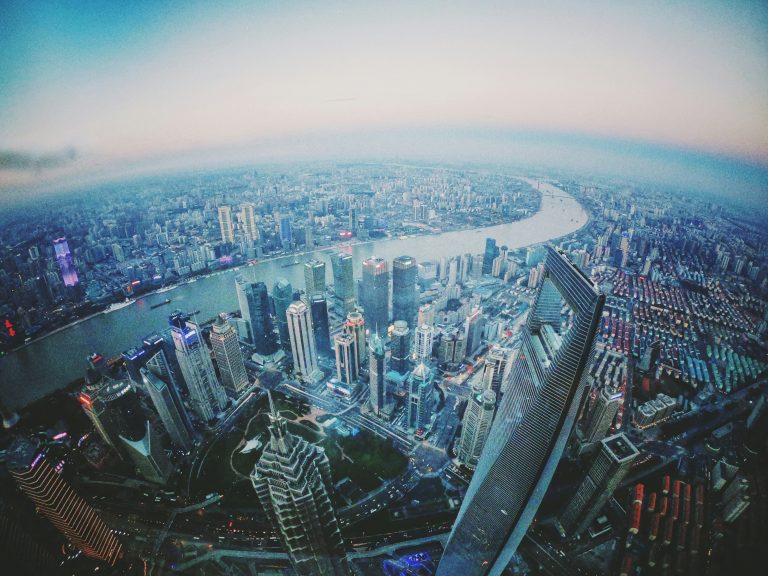Editor’s note: During the course of the CP Conference 2016, we had the opportunity to interview a variety of attendees and hear from their experiences. We hope those unable to attend the conference this year enjoy hearing about what these attendees came away with!
Can you briefly introduce yourself?
My name is Steven Hu and I am a PhD candidate at UC Santa Barbara. My area of interest and research is religion in China and I look specifically at the growth and development of Christianity in China specifically. I’m also very interested in the relationship between religion and the state or government in China.
What brought you to this conference?
I came last year and this year, what I hope to get out of this is to hear what the Chinese church is doing in China and what the experience has been for these pastors and leaders in China. And also for selfish reasons to meet people so that when I do go to China next fall to conduct ethnographic research, I can have some contacts on the ground to work with.
Can you tell us a little about your academic field and the study of religion in China?
Well, anything that’s related to China is always a big, big discipline, and China studies has always been a huge discipline. Since the opening up of China in the ‘80s and post-reform era, scholars have been very interested in looking at Chinese society especially religion, because the state sometimes has had an antagonistic relationship with religion. That’s not just true in the modern era, but also throughout history, so the study of religion in China has spanned the whole history of the culture and country.
More recently, because of the way China is developing and because of the fact that China has become a global player in the world, scholars are very interested in looking at how religion is practiced, how it’s lived, how it affects people and how it affects relationships not just between people, but between people and the state.
Religion itself is seen by many scholars as something that can be in competition with a governing body. And that comes with the study of religion. Religion has been thought about as a mechanism that can generate social cohesiveness. One of the first sociologists, Emile Durkheim, talks about this fact that religion is a social thing. So the government in China these days is very interested in the question of religion because they see religion as a competition against what they are trying to do to organize and bring people together. And of course the CCP [Chinese Communist Party] is very wary of that. You can see that not just with Mao, but before Mao in the Republican Era, there were attempts to control religion. So the control of religion actually began before the PRC [People’s Republic of China] was formed in 1949.
And so scholars are very interested in these questions and it’s a growing field, and human rights is one of the questions that’s involved with the practice of religion. Some scholars also say that religion forms the basis of civil society, and that’s problematic for the government because they don’t want freely participating and freely autonomous individuals doing their own thing. In some ways, some of the activities the churches are engaged in are building blocks of a nascent civil society. What they [churches] do in terms of giving blood, or neighborhood cleanups, or offering really basic social services is taking the place of the state as they try to inform their own members and give them abilities to act on their own, and again, that’s very dangerous for the government. So these are the kinds of questions scholars are very interested in, and I’m also interested in these kinds of questions.
Never miss a story
Who is an interesting person you’ve met at the conference this weekend?
I just talked with [one of the Chinese pastors] really briefly, for like five minutes, but I just think what he’s doing with his church and the members in his church is really interesting and fascinating. The fact that he can mobilize his membership to engage the society around them in [their city] is really interesting. I also find [another Chinese pastor] to be really interesting. I haven’t talked to him, but he is pretty charismatic and he definitely has a presence. I can see why he is able to bring people together as a pastor. So these are folks that are doing ministry in China, and I can imagine them doing the same thing here with Chinese-Americans.
How have you seen God working in China in the last 15 years?
Maybe for this question I can talk more about how I see the question of religion being played out in China? And what the current state is in terms of society in China?
Of course.
So what’s interesting to me is that there are two types of narratives that’s being talked about among church people and also among non-church people. And I see that it’s the same discourse, the same narrative. When you talk to a lot of Christians, what they are saying, and we heard some of it this morning, is that Chinese society is experiencing a huge transformation because of market reforms and the fact that it’s a centralized, controlled, free market system which is really, really weird and interesting. That has opened up spaces for people in Chinese society to pursue their own ends, ideas and desires. That kind of pursuit of money and capital has created a kind of vacuum and people are left wanting more. The kind of narrative that’s being talked about here is that because of this kind of wanting and desire for something more that’s beyond them, something that’s transcendent. Thus, people are seeking religious activities and practices because they believe they can have that and achieve that transcendence.
And I think that is true, that is something you see empirically on the ground. There is kind of wanting and desire and vacuum that’s created by market reforms. But on the other side, when you talk to non-Christians, and also to academics and scholars, they are saying the same thing. What they are saying is that Chairman Mao’s system which he created in 1949, and we heard this this morning as well, [allowed him] to become a god essentially. So he was worshipped, and his system of socialization and communes were an attempt to create a moral system in a lot of ways. He created that system from 1949 on until he died in ’76, and it was this moral institution that gave meaning to people. Once that collapsed, people had no foundation to go on. This is how many academics explain the flourishing of religious practices. After the Cultural Revolution, you see this kind of bubbling of religious beliefs and practices, not just Christianity, but popular religions like Daoism, Buddhism, and Islam as well in some ways.
I think if the church is seeing certain things along with academic scholars, there is something to that. I think what is going on on the ground is that we’re still seeing that kind of desire among people for something bigger than them, like a story or narrative that is bigger than them. They’re seeking those kinds of ways of achieving that, whether through Buddhism, Daoism, or the house church. So what comes out of that is that money can give you some stuff, but it can’t get you everything. That is what I see being played out in China at this point.
It’s interesting because when I read the scholarship on religion in China , I began to recognize that what the scholarship is saying is not much different than what the church is saying. Christians may say it a different way, or they may have a different way of explaining it or nuancing it, but it’s similar because when you look at Mao and what he did, and it’s the same with North Korea, he is this kind of divine sovereign. Mao had this little red book and people say that’s the bible for him. There’s also these kind of public shaming activities during the Cultural Revolution and those were seen as confessions. If you actually have bad thoughts about Chairman Mao and if you’re not contributing to communism, you have to confess. That’s a confessional system! In some ways that’s like Christianity. So once that all collapsed and disappeared, people had nothing to go on. There is a lot written on people pursuing Buddhism and Daoism to fill that kind of void and this is part of the story. It’s bigger. It’s not just about Christianity, but about people’s desire to pursue something bigger than them.
What would you like the American church to know about the Chinese church?
I think the picture on the ground in China is way more complicated and complex than what we make of it. Sure there is persecution going on in China against the Christians, but there is also a lot growth and a lot of stability for Christians in China, so the picture is always very complicated. Typically in an American church, we like to talk about this kind of martyrdom complex. Some of it is true on the ground, but also if you look at church history, the church is always able to blossom in these areas, and we see that in China. So one thing I would like the American church to understand and to know is that the situation is not black or white – it’s very grey. And it’s those grey areas, those nuanced areas that if you dig deeper and look into in depth that are very, very interesting. I would encourage American Christians to do their research and read more, and if they can, talk to people in China about these kinds of things and not just go on what the media feeds us. Sometimes that’s not helpful for our general understanding of the world. I think American Christians can do much better in terms of understanding what’s going on in the world by not assuming that there is a black and white, but there is actually a lot of grey in between.
How do you pray most for China?
I think listening to what people have said in the past few days, I would just pray for continuous strength for these leaders. I think what they do is important and how they bring people together and how they help people see a different narrative is very important. I would pray for continuous strength and wisdom for these leaders and that God would give them wisdom to do what they do and to be “wise as serpents and innocent as doves.” That’s my prayer for them.
What will you take home with you from this weekend?
What I will take home from this week is that, as I said, the situation on the ground is a lot more complicated. A lot of good things, and a lot of bad things are happening, but the good things are really amazing. What these folks are doing in terms of their outreach and their attempts “transform” their neighborhoods and society in general, and I hope they can be successful in what they do.































